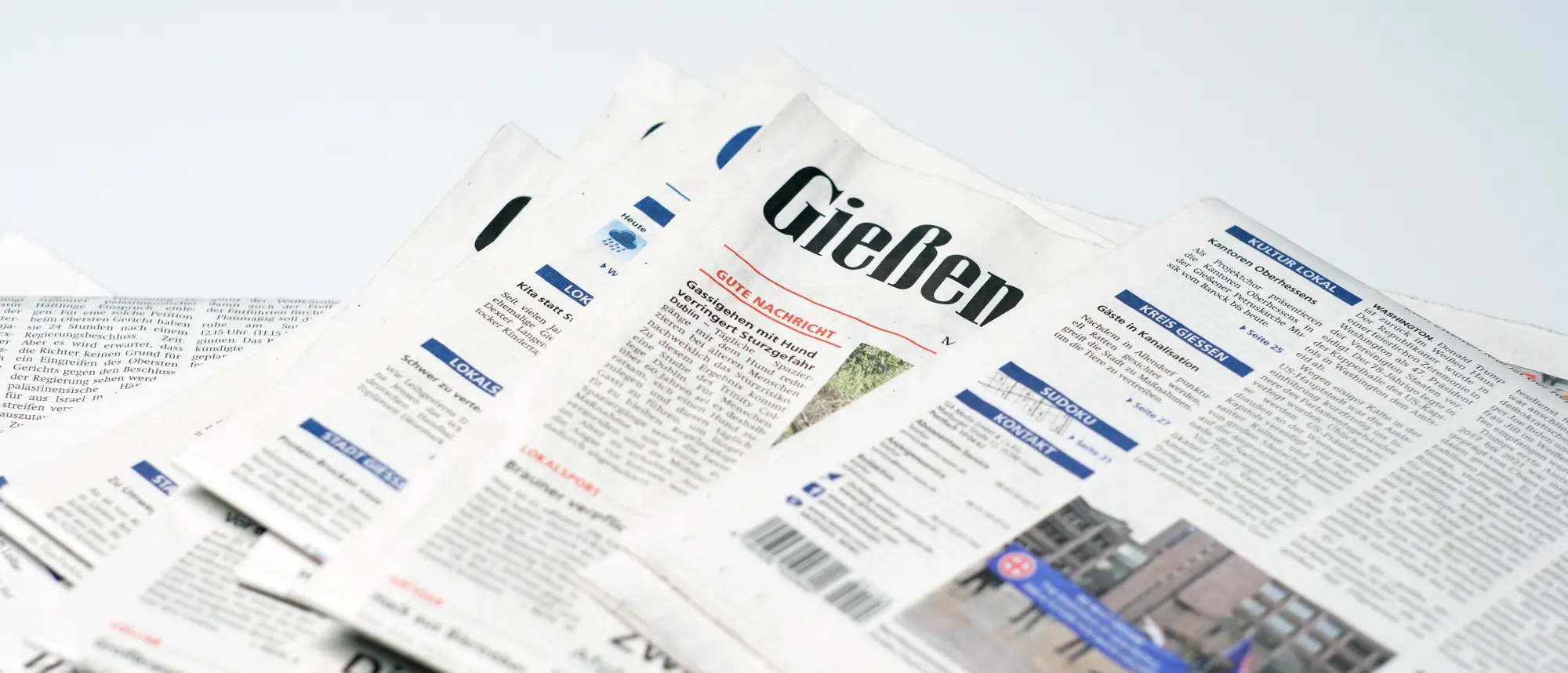SWG support municipalities
On 15 and 20 May, SWG welcomed representatives from 29 different cities and municipalities to the fourth Municipal Energy Day.
The energy transition not only poses major challenges for the energy industry. Municipalities are also faced with numerous, sometimes very complex tasks that they will have to tackle in the coming years. Two key examples of this are municipal heating planning and the sustainability of drinking water supplies. It was therefore no coincidence that these topics were on the agenda of the fourth Municipal Energy Day. Stadtwerke Gießen (SWG) had invited decision-makers from town halls in the region to attend. 41 guests took up the offer and gathered in Lahnstraße on 15 or 20 May from 8.30 am. "To enable as many people as possible to take part, we are offering the event, which is identical in terms of content and programme, on two dates," explains Andreas Fuchs, Head of Sales at SWG and host of the Municipal Energy Day.
Providing information and offering solutions
Like its three predecessors, this year's spring edition of the Energy Day covered a wide range of topics. In addition to the aforementioned contributions on sustainable drinking water supply and municipal heating planning, an SWG expert shed light on the many different possibilities of intelligent building control using LoRaWAN. "There are countless applications for this efficient wireless technology, especially in local authorities," says Andreas Fuchs. The spectrum ranges from car park monitoring and heating or lighting control to measuring air values in rooms, fill levels in waste bins, water levels in rivers or moisture in flower beds.
Another presentation dealt with an important side aspect of municipal heat planning and the question of how the increasing number of electrically powered heat pumps and wallboxes affect grid stability. "Of course the future is electric. But the path to this future requires precise coordination with all parties involved in advance," added Andreas Fuchs. The last presentation also fitted seamlessly into the agenda of the Municipal Energy Day - as a logical continuation, so to speak. It centred on smart metering systems and the availability of data. These are of fundamental importance for controlling loads in the electricity grid.
Well received
SWG obviously hit the mark with the Municipal Energy Day. In fact, the participants gave the event top marks - both in terms of the technical content and the way in which the sometimes complex issues were presented. The fact that many of the guests had already attended the first three Municipal Energy Days also speaks in favour of the now established and popular format.
The fact that SWG not only passed on a wealth of useful information during the four hours of the event, but also deliberately left plenty of room for networking, certainly played a large part in the event's success. "During the breaks and over lunch together in our canteen, really exciting conversations take place. Not only between our guests and us, but above all between the visitors themselves," reports Andreas Fuchs.
With the Municipal Energy Day, SWG has created a platform for dialogue at eye level. And the next edition is already being planned. "We take our guiding principle 'With energy. For the region.' very seriously. That's why we see it as our mission to support neighbouring towns and municipalities in the upcoming transformation," Andreas Fuchs continues. Because this transformation is gathering pace, the organisers of the next Municipal Energy Day in autumn 2025 are unlikely to run out of material. Andreas Fuchs puts it this way: "I am quite sure that we will once again be able to gather a lot of useful information for our guests from the town halls at the next event."

